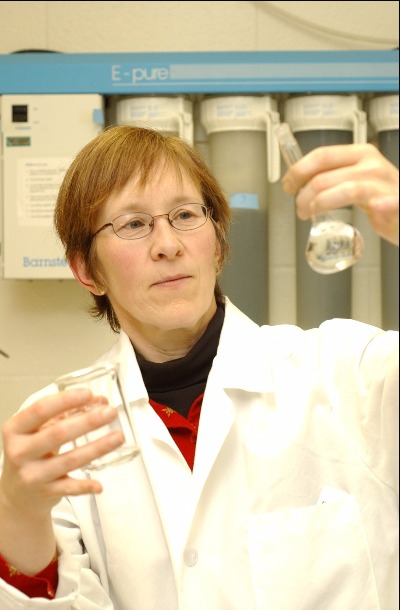It’s no secret that eating a healthy, balanced diet is good for your health. For people who have had a stroke, the impact could be even more critical.
Research led by Dr. Phyllis Paterson is building a picture of some surprising ways that diet could affect stroke recovery. Her lab is one of the first to investigate the potential consequences of poor nutrition on stroke rehabilitation.
“The nutrition of stroke patients is a critical area of research that needs attention” says Dr. Paterson, a professor of nutrition at the University of Saskatchewan.
Malnutrition affects as many as 50% of stroke patients. Typically in North America, it’s a problem that is seen in elderly patients. But there’s another group, people who become malnourished as a result of their stroke. Difficulty swallowing, mobility issues and feelings of depression can interfere with a person’s ability to eat a full, balanced diet.
“We have some evidence that being malnourished makes stroke recovery worse,” Dr. Paterson says.

We think that nutrition could also be important in strength and in rehabilitation
Food for thought
Her team’s early findings show that malnutrition reduces key recovery processes — for example, decreasing the amount of inflammation produced in the brain after a stroke.
“In the right amounts inflammation is actually a good thing,” she explains. “It’s the body’s response to any injury and it helps contain the stroke so that the brain can begin repairing itself.”
There’s also evidence that malnutrition diminishes brain plasticity — the ability of the brain’s cells to reorganize themselves and make new connections.
Dr. Paterson found that in studies involving rats, certain limb muscles not affected by a stroke gradually increased in size, possibly to make up for the injury on the other side affected by the stroke. The malnourished group couldn’t compensate and their recovery didn’t progress.
“We think that nutrition could also be important in strength and in rehabilitation in terms of trying to retrain a limb that's been damaged by the stroke,” says Dr. Paterson.
Pointing to solutions
Although malnutrition is a common and challenging problem, Dr. Paterson notes that providing more support could offer a potential solution, particularly for people who are elderly or have complex needs. Having more dietitians available to consult could help patients monitor their diet and provide specialized meal plans or other strategies to overcome problems such as difficulty swallowing.
“Some of the challenges after stroke are quite great,” Dr. Paterson says. “We’re addressing questions about how big a difference malnutrition makes to brain and other body systems that play a role in stroke recovery and how fast we need to treat it so that there are no permanent effects.”

